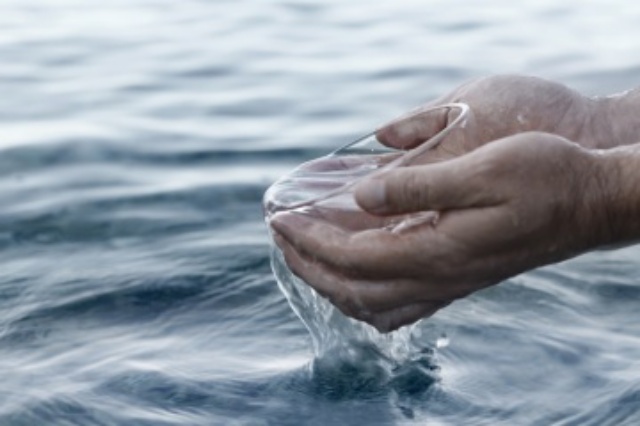
Water could be available to those in the world’s poorest regions in the near future after a team of scientists in the UK have developed revolutionary new sieve that is capable of making seawater drinkable.
The latest scientific breakthrough that could deliver clean drinking water to people in remote regions comes after a team of researchers at Manchester University developed a graphene-based sieve that removes the harmful salts within the water.
The team who won a Nobel Prize back in 2010 for first extracting graphene, now say they have successfully managed to precisely control the sizes of pores in a graphene oxide sieve.
They also say the latest discovery which could be life changing will allow them to filter out salts from water to make it safe to drink.
Speaking about the latest breakthrough Professor Rahul Nair, said it is a ‘significant step forward’ that will ‘open new possibilities for improving the efficiency of desalination technology.;
Prof Nair told the journal Nature Nanotechnolog: ‘Realisation of scalable membranes with uniform pore size down to atomic scale is a significant step forward and will open new possibilities for improving the efficiency of desalination technology.’
‘This is the first clear-cut experiment in this regime. We also demonstrate that there are realistic possibilities to scale up the described approach and mass produce graphene-based membranes with required sieve sizes.’
Mr Jijo Abraham, joint lead author of the paper along with Dr Vasu Siddeswara Kalangi, said: ‘The developed membranes are not only useful for desalination, but the atomic scale tunability of the pore size also opens new opportunity to fabricate membranes with on-demand filtration capable of filtering out ions according to their sizes.’
The revolutionary new discovery comes at a crucial time as latest projections have shown that 1.5bn people across the globe could soon be short of clean drinking water by as early as 2025.



